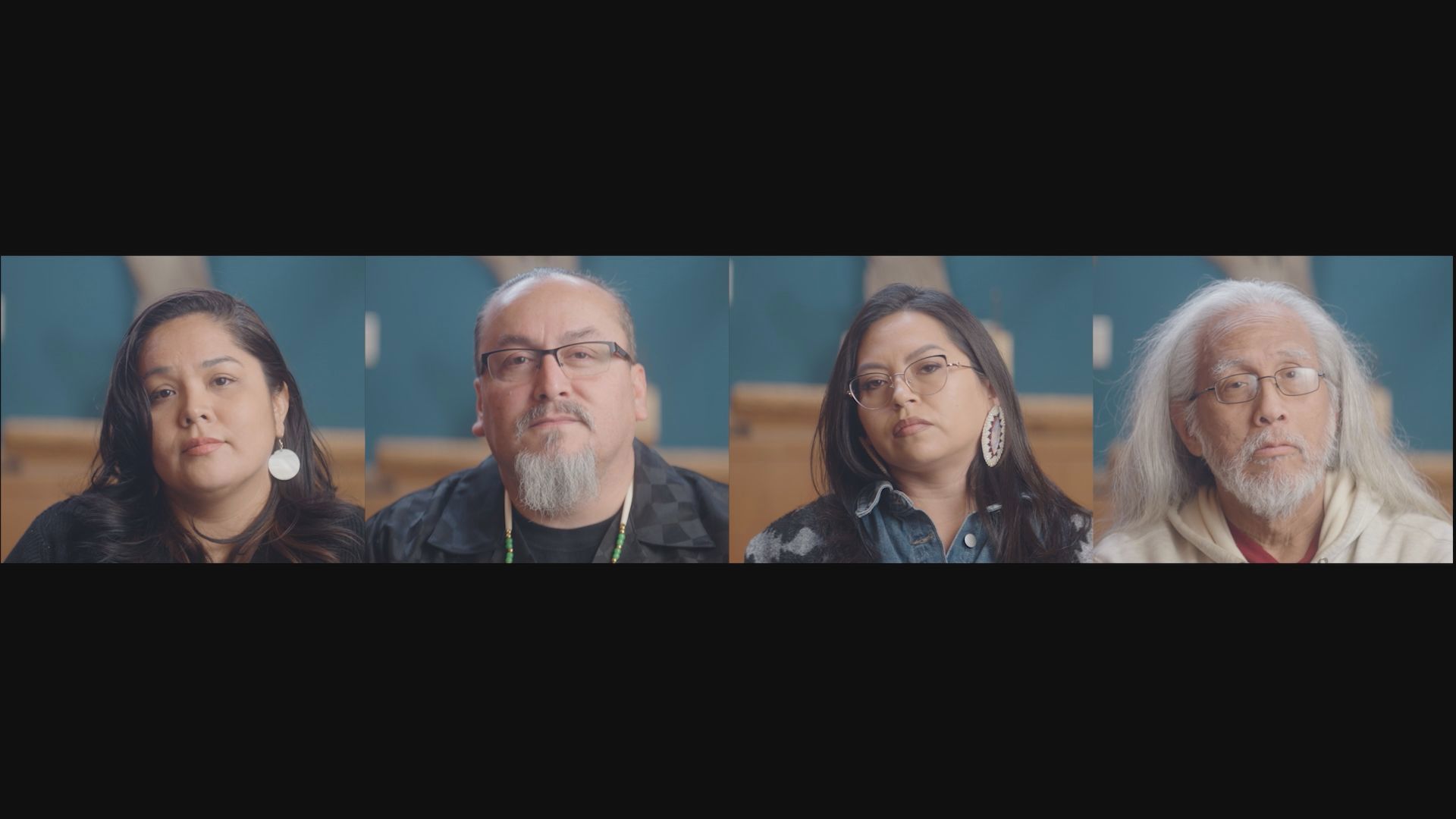SEATTLE — Each November, we take time to celebrate the traditions, languages and stories of Native American folks in our community. For this Native American Heritage month, photojournalist Joseph Huerta and Facing Race reporter Sharon Yoo interviewed Indigenous folks about their identity.
Please tell us your name and your tribal affiliation
Derrick Belgarde: My name is Derrick Belgarde, I’m an enrolled member of the Confederate Tribes of Siletz Indians of Oregon.
Ben Ziz Bah (aka Pamela Vaughn): My name is... well my given name, is Ben Ziz Bah, which translates to warrior for the world, that's Navajo given to me by my grandmother. But my English name is Pamela Vaughn. Vaughn is Navajo and Coast Salish Cowichan.
Lloyd Dalton: I'm Lloyd Dalton and I'm from Alaska, Haida and Tsimshian.
Nawiishtunmi Nightgun: My name is Nawiishtunmi Nightgun and I'm the chief traditional officer here (at Chief Seattle Club) and I'm enrolled in the traditional bands of the Yakama Nation and the descendent of the Blackfeet Nation.
What does it mean to be an Indigenous person in 2024?
Derrick: That is a good question. Resiliency, community - bringing people together, I try to remain positive when I think about these things.
Lloyd: They say racism isn't here? Or it's gone? But no, it's just more subtle against the Natives.
What are some misconceptions non-Indigenous people have about Indigenous people?
Nawiishtunmi: Growing up one the misconceptions I would hear is that we're dumb. Because educational books would say they just gave away their land, and didn't sell it for much-- we didn't have a choice.
Ben Ziz Bah: There's a lot of misconceptions about you know-- the benefits right? For example, if you're a tribal member, do you get financial compensation that goes along with that, or do you get free land, free housing, some of the benefits that can be really misunderstood.
Derrick: People thinking that we all have this influx of money that's coming in because of casinos and whatnot. A lot of our casinos for the most part are barely just paying for some social services in our tribal communities.
What experience has your family had with government boarding schools? How did that impact your family?
Ben Ziz Bah: My mother and my grandmother were both boarding school victims, and they survived and because of their traumas, they passed that-- some of the struggles down to me, and now it is up to me to be able to start healing from that.
Nawiishtunmi: They tried to bury us by erasing our culture, by erasing our language, by erasing our way of life but they didn't know that we was the seed, we was the seed for change.
Derrick: What boarding schools did was take generations after several generations - consecutively take them away from their communities, their families broke down the systems of family values, what it is to be native parents, native children, family members... and taught them nothing but abuse and anger.
It takes a lot of love and healing to break that cycle but our culture and our ceremony is going to be the way to do it.
What makes you proud?
Ben Ziz Bah: Our resilience for one, we have a great sense of humor.
Nawiishtunmi: I feel beautiful being Native. I feel beautiful because I've seen the heartache of what had to be before me and that in this day, it's to be able to cultivate our culture in a meaningful way.
Derrick: Identity is everything, you have to have a positive self-identity. You’ve got to know who you are. When you're not, when you don't, it's when you get lost.
I think about myself and I think maybe if I had the opportunity and got reconnected with my culture before I did, maybe, I would have sobered up many years earlier and saved a lot of heartache for myself, my community.
Nawiishtunmi: There's people my age who are non-na'Ttive, who don't fully understand the difficulties that Native people had to face: why I sit here today and speak English instead of Yakama or Blackfeet. It's important for our youth to understand it.
What would you like to share with the younger generation of Native youth?
Lloyd: Stay off drugs is the big one, and listen to your elders. If you get a chance, talk to them. See what they was like growing up.
Ben Ziz Bah: There's a lot of lost traditions and a lost language among our community, and it can be really disheartening to hear that our community members don't have that same access, so again just reach out if you want to know anything.
Nawiishtunmi: If our resources are available, that resource is for you. So I really feel like we're on the trajectory to heal each other and support one another and bring back who we once were before the trauma was inflicted.

